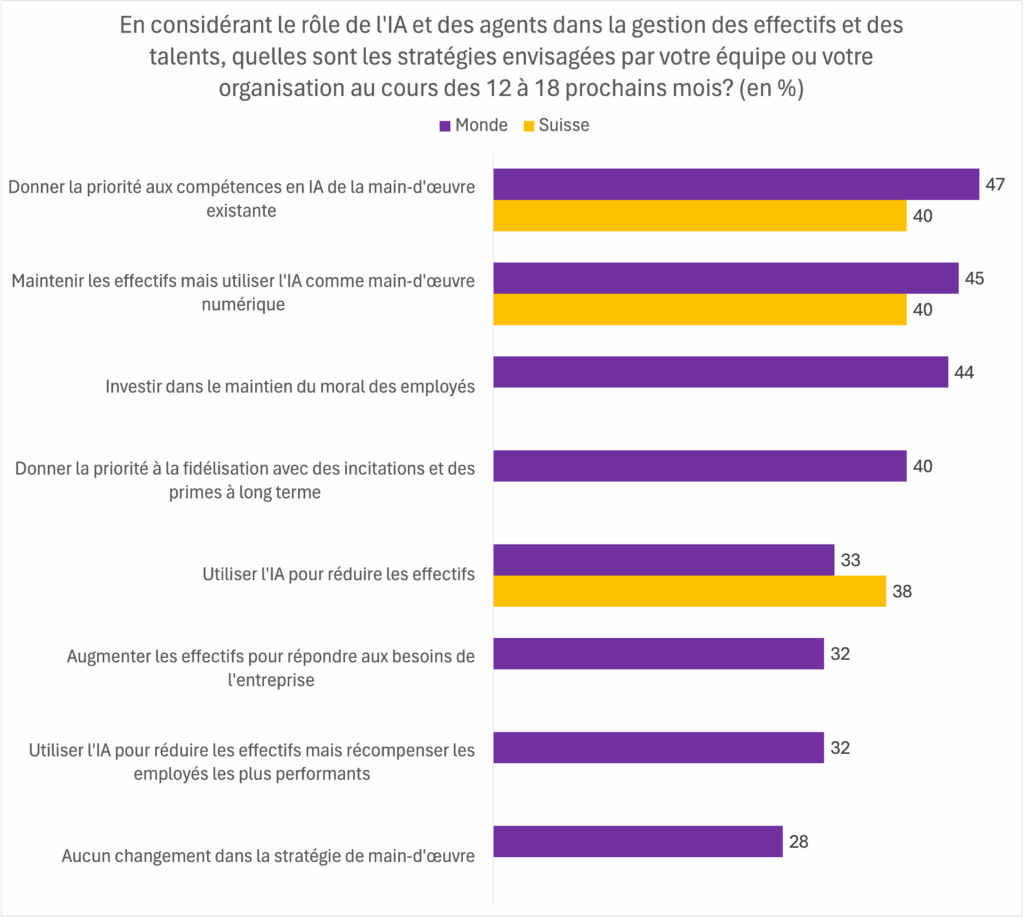Three-Quarters of Swiss Decision-Makers Plan to Deploy AI Agents in Their Teams

Swiss companies accelerate the integration of AI agents: towards a transformation of work?
According to Microsoft’s latest Work Trend Index, 72% of Swiss decision-makers intend to deploy artificial intelligence (AI) agents within their teams over the next 12 months. This initiative forms part of a broader strategy to rethink company operations in light of AI capabilities—a shift considered by 80% of the respondents.

A Response to Productivity Challenges
The integration of AI agents is primarily aimed at addressing the lack of time and energy reported by 80% of Swiss employees. It also aligns with the objective of 55% of decision-makers who want to boost their organisation’s productivity.
Towards a New Work Organisation
The report highlights that AI agents are valued for their constant availability, speed, quality of output, and creative idea generation. Half of Swiss employees already use these tools either to delegate tasks or as thinking partners.
In light of this evolution, companies are being encouraged to develop a new metric: the agent-to-employee ratio. The goal is to identify where a combined human–AI workforce outperforms AI alone—especially in situations where human interaction is preferred by customers or when important responsibilities are at stake.
The Rise of the “Agent Manager”
The report foresees the rise of a new role within organisations: the “agent manager”. This person will be responsible for building, delegating to, and managing agents to maximise their impact and steer their career in the AI age. According to the report, every worker will need to think like the CEO of a startup powered by agents.
A Growing Need for Training
To support this transformation, 48% of Swiss decision-makers believe that training in AI and the development of new skills will become essential within their teams. Working effectively with agents will require learning how to interact with AI, delegate tasks, provide clear and contextual instructions, refine outputs, identify flawed reasoning, and steer conversations.
In summary, 2025 is shaping up to be a pivotal year for Swiss companies, which will need to integrate AI strategically and equip their teams with the skills to harness the full potential of this technology.


